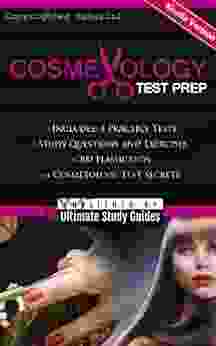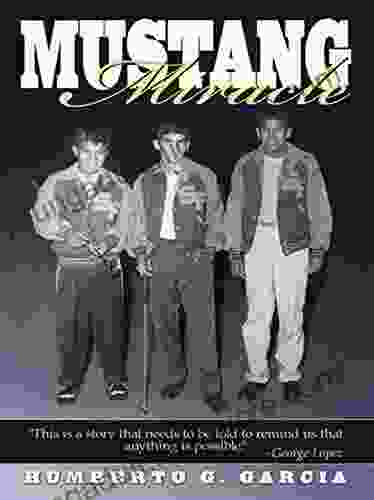Vocabulary for Writing at University: The Ultimate Guide

Vocabulary is the foundation of effective writing. This is especially true in academic writing, where students are expected to communicate complex ideas in a clear and concise manner. A strong vocabulary will not only help you express yourself more effectively, but it will also improve your critical thinking and comprehension skills.
4.6 out of 5
| Language | : | English |
| File size | : | 8499 KB |
| Text-to-Speech | : | Enabled |
| Enhanced typesetting | : | Enabled |
| Print length | : | 272 pages |
This guide will provide you with everything you need to build a strong vocabulary for university writing. We will cover the following topics:
- The importance of vocabulary
- Strategies for building a strong vocabulary
- Tips for using vocabulary in your writing
- Common vocabulary mistakes to avoid
- Resources for vocabulary development
The Importance of Vocabulary
Vocabulary is essential for effective communication. It allows us to express our ideas clearly and concisely, and to understand the ideas of others. This is especially important in academic writing, where students are expected to communicate complex ideas in a formal and precise manner.
A strong vocabulary will help you:
- Express yourself more effectively: The more words you know, the more precisely you can express your thoughts and ideas.
- Understand the ideas of others: If you are not familiar with a word, you will not be able to fully understand what someone is trying to say.
- Improve your critical thinking and comprehension skills: Vocabulary is the building block of thought. The more words you know, the better you will be able to think critically and comprehend complex texts.
Strategies for Building a Strong Vocabulary
There are many different ways to build a strong vocabulary. Some of the most effective strategies include:
- Reading: Reading is the best way to expose yourself to new words. When you read, pay attention to the unfamiliar words and look them up in a dictionary. You can also keep a notebook of new words and their definitions.
- Writing: Writing is a great way to practice using new words. When you write, challenge yourself to use new words that you have learned. You can also ask a friend or teacher to review your writing and help you identify any unfamiliar words.
- Flashcards: Flashcards are a classic vocabulary-building tool. Write down a new word on one side of a card and its definition on the other side. Then, quiz yourself on the words until you can remember them all.
- Online resources: There are many online resources that can help you build your vocabulary, such as Vocabulary.com and Merriam-Webster's Word of the Day.
Tips for Using Vocabulary in Your Writing
Once you have built a strong vocabulary, it is important to use it effectively in your writing. Here are a few tips:
- Use precise words: When you use precise words, you will be able to express your ideas more clearly and concisely. Avoid using vague or general words, such as "good" or "bad." Instead, use specific words that convey your exact meaning.
- Vary your vocabulary: Don't overuse the same words over and over again. This will make your writing sound repetitive and boring. Instead, vary your vocabulary by using synonyms and antonyms.
- Use figurative language: Figurative language, such as metaphors, similes, and personification, can help you make your writing more vivid and engaging. However, be careful not to overuse figurative language, as it can become distracting.
Common Vocabulary Mistakes to Avoid
There are a few common vocabulary mistakes that students often make. Here are a few things to avoid:
- Using words incorrectly: Make sure you understand the meaning of a word before you use it. Don't use words that you are not familiar with, as this can lead to confusion.
- Using slang or colloquialisms: Slang and colloquialisms are informal language that is not appropriate for academic writing. Stick to using formal language in your essays and reports.
- Overusing certain words: Avoid overusing certain words, such as "very" and "really." These words can make your writing sound repetitive and weak.
Resources for Vocabulary Development
There are many resources available to help you develop your vocabulary. Here are a few of the most helpful:
- Dictionaries: A good dictionary is an essential tool for any student. It will help you look up the meaning of unfamiliar words and learn how to spell and pronounce them correctly.
- Thesaurus: A thesaurus is a great way to find synonyms and antonyms for words. This can help you vary your vocabulary and make your writing more interesting.
- Online resources: There are many online resources that can help
4.6 out of 5
| Language | : | English |
| File size | : | 8499 KB |
| Text-to-Speech | : | Enabled |
| Enhanced typesetting | : | Enabled |
| Print length | : | 272 pages |
Do you want to contribute by writing guest posts on this blog?
Please contact us and send us a resume of previous articles that you have written.
 Fiction
Fiction Non Fiction
Non Fiction Romance
Romance Mystery
Mystery Thriller
Thriller SciFi
SciFi Fantasy
Fantasy Horror
Horror Biography
Biography Selfhelp
Selfhelp Business
Business History
History Classics
Classics Poetry
Poetry Childrens
Childrens Young Adult
Young Adult Educational
Educational Cooking
Cooking Travel
Travel Lifestyle
Lifestyle Spirituality
Spirituality Health
Health Fitness
Fitness Technology
Technology Science
Science Arts
Arts Crafts
Crafts DIY
DIY Gardening
Gardening Petcare
Petcare Danil Zburivsky
Danil Zburivsky Bret A Moore
Bret A Moore Mercedes Pollmeier
Mercedes Pollmeier Jordan Summers
Jordan Summers Nicholas Epley
Nicholas Epley Ryan Beck
Ryan Beck Michael V Uschan
Michael V Uschan Jeffrey Bernstein
Jeffrey Bernstein Avinash Navlani
Avinash Navlani James M Johnston
James M Johnston Marilyn Burgos
Marilyn Burgos Chef Maggie Chow
Chef Maggie Chow Neil Hawkesford
Neil Hawkesford Anna Rashbrook
Anna Rashbrook Karl Beecher
Karl Beecher Mary Pipher
Mary Pipher Tj Faultz
Tj Faultz Schoolhouse Heaven
Schoolhouse Heaven Miranda Green
Miranda Green Cap N Fatty Goodlander
Cap N Fatty Goodlander Nathaniel Rich
Nathaniel Rich Donna Mott
Donna Mott Angela C Wu
Angela C Wu Bradley T Erford
Bradley T Erford Mark Wells
Mark Wells Ellen Frank
Ellen Frank Elly Molina
Elly Molina Alex Wolf
Alex Wolf Nikki Ace
Nikki Ace Marie Myung Ok Lee
Marie Myung Ok Lee Keith Elliot Greenberg
Keith Elliot Greenberg Kyle Graves
Kyle Graves Warren St John
Warren St John Eliot Schrefer
Eliot Schrefer Jason Hogan
Jason Hogan Ed Stafford
Ed Stafford Oliver Burkeman
Oliver Burkeman Humberto G Garcia
Humberto G Garcia Rosie Daley
Rosie Daley Rebecca Serle
Rebecca Serle Emily Nielson
Emily Nielson Connie Schultz
Connie Schultz Joan Jacobs Brumberg
Joan Jacobs Brumberg Richard L Sites
Richard L Sites Lee Cronk
Lee Cronk Shreya Ramachandran
Shreya Ramachandran Marc Charles
Marc Charles Germano Dalcielo
Germano Dalcielo Margaret Jordan Halter
Margaret Jordan Halter Kristen S Kurland
Kristen S Kurland Kat Anderson
Kat Anderson K Moriyasu
K Moriyasu Yuu Tanaka
Yuu Tanaka Stuart Lawrence
Stuart Lawrence Jenny Smith
Jenny Smith Ben Ehrenreich
Ben Ehrenreich Robin Benway
Robin Benway Bradley Charbonneau
Bradley Charbonneau Dr Eva Beaulieu
Dr Eva Beaulieu Seth Lloyd
Seth Lloyd D M Davis
D M Davis Peter Gibson
Peter Gibson Otto Rahn
Otto Rahn Eugene P Northrop
Eugene P Northrop Viviana Altuve
Viviana Altuve Bill Schneider
Bill Schneider Howard Davis
Howard Davis Ashley P Martin
Ashley P Martin Wayne Mcghie
Wayne Mcghie Robb Manning
Robb Manning Arlin Smith
Arlin Smith Rebecca P Cohen
Rebecca P Cohen Rashaun Johnson
Rashaun Johnson Jorge Ramos Mizael
Jorge Ramos Mizael Eli Wilson
Eli Wilson Belinda Norton
Belinda Norton Katrina Cope
Katrina Cope Carlo Rovelli
Carlo Rovelli Karen Elliott House
Karen Elliott House Jodi Shabazz
Jodi Shabazz Florian Freistetter
Florian Freistetter Joy Williams
Joy Williams Natalie Rhodes
Natalie Rhodes Mark Synnott
Mark Synnott Jessica Nordell
Jessica Nordell Keylee C Hargis
Keylee C Hargis Dan Ariely
Dan Ariely Afra J Zomorodian
Afra J Zomorodian Pete Sampras
Pete Sampras Margaret Visser
Margaret Visser Dan Heath
Dan Heath Lawrence Goldstone
Lawrence Goldstone Jeremy Klaff
Jeremy Klaff Latonya J Trotter
Latonya J Trotter Catherine Mccord
Catherine Mccord Joyce Yang
Joyce Yang Laura Bogen
Laura Bogen Mark J Musser
Mark J Musser Christopher O Kennon
Christopher O Kennon Hajime Isayama
Hajime Isayama Baby Professor
Baby Professor Christian Wiggins
Christian Wiggins Deborah Wall
Deborah Wall Chuck Weikert
Chuck Weikert Jeff Fleischer
Jeff Fleischer Donald N Yates
Donald N Yates Jerry Toner
Jerry Toner Diana Winston
Diana Winston Charney Herst
Charney Herst Ellen J Langer
Ellen J Langer Susan Burton
Susan Burton Forrest Maready
Forrest Maready Tom Chatfield
Tom Chatfield R E Burrillo
R E Burrillo Ben Campbell
Ben Campbell Tovar Cerulli
Tovar Cerulli Hourly History
Hourly History Beth A Leonard
Beth A Leonard Greg Prato
Greg Prato Roger Craig
Roger Craig Joe Peta
Joe Peta Lynn Lyons
Lynn Lyons Shalabh Aggarwal
Shalabh Aggarwal Johnson Egonmwan
Johnson Egonmwan Warren Sande
Warren Sande Emiko Jean
Emiko Jean Diana Nyad
Diana Nyad G K Derosa
G K Derosa Scott Stillman
Scott Stillman Tristan Higbee
Tristan Higbee Erich Fromm
Erich Fromm Joseph Phillips
Joseph Phillips Rebecca Solnit
Rebecca Solnit Christina Hillsberg
Christina Hillsberg Sabbithry Persad Mba
Sabbithry Persad Mba Barak Ariel
Barak Ariel Jim Saccomano
Jim Saccomano Kent David Kelly
Kent David Kelly Bob Gordon
Bob Gordon Angelo Tropea
Angelo Tropea Gregory J Davenport
Gregory J Davenport Paul Cobley
Paul Cobley Liv Ryan
Liv Ryan Lois A Ritter
Lois A Ritter Ron Jeffries
Ron Jeffries Angel Millar
Angel Millar Jo May
Jo May Shenila Khoja Moolji
Shenila Khoja Moolji Tanya Lee Stone
Tanya Lee Stone Ted Sandling
Ted Sandling Robin Ray Green
Robin Ray Green Devaki Lakshmi
Devaki Lakshmi Michael Anthony
Michael Anthony Dave Duncan
Dave Duncan Matthew D Dewar
Matthew D Dewar Michael Tomasello
Michael Tomasello Kari Marie Norgaard
Kari Marie Norgaard Carlos Acevedo
Carlos Acevedo Stefanie K Johnson
Stefanie K Johnson David Herres
David Herres Nicole Smith
Nicole Smith Tim Macwelch
Tim Macwelch Richard Bate
Richard Bate Kate Le Roux
Kate Le Roux Rick Vaive
Rick Vaive Stephen Jungmann
Stephen Jungmann Jenna Blough
Jenna Blough Andy Tyson
Andy Tyson Christopher Nyerges
Christopher Nyerges Tara Sim
Tara Sim Mitch Horowitz
Mitch Horowitz Martin Volken
Martin Volken Colby Coombs
Colby Coombs Leonard Lueras
Leonard Lueras Nick Bradley
Nick Bradley Andy Crowe
Andy Crowe Ryan Bow
Ryan Bow Irene Gut Opdyke
Irene Gut Opdyke Marie Brennan
Marie Brennan Leanne Ely
Leanne Ely Robert Kirk
Robert Kirk Brian Cain
Brian Cain James Quinn
James Quinn Patrick M Lencioni
Patrick M Lencioni Stephanie Land
Stephanie Land Rachel Hutt Phd
Rachel Hutt Phd William D Lopez
William D Lopez David Graeber
David Graeber Serena B Miller
Serena B Miller George Johnson
George Johnson Kathy Hoopmann
Kathy Hoopmann Derek M Steinbacher
Derek M Steinbacher Stewart Shapiro
Stewart Shapiro Andy Schell
Andy Schell Jeff Mach
Jeff Mach Fredrik Backman
Fredrik Backman Robyn Ryle
Robyn Ryle Violet White
Violet White Margaret M Quinlan
Margaret M Quinlan Robert Dudley
Robert Dudley Judea Pearl
Judea Pearl William E Hearn
William E Hearn Shane O Mara
Shane O Mara Andrea Lankford
Andrea Lankford Alberta Hawse
Alberta Hawse Kenneth R Ginsburg
Kenneth R Ginsburg Tim Thayne
Tim Thayne Nicholas Jubber
Nicholas Jubber Erin Moulton
Erin Moulton William Bryant Logan
William Bryant Logan Frederick Aardema
Frederick Aardema Matt Vincent
Matt Vincent Israelin Shockness
Israelin Shockness Frank Deford
Frank Deford Jennifer Bohnet
Jennifer Bohnet Ray Walker
Ray Walker Manik Joshi
Manik Joshi Kristen Jervis Cacka
Kristen Jervis Cacka Rodney Paul
Rodney Paul Lin Wellford
Lin Wellford Petros Efthymiou
Petros Efthymiou Phil Burt
Phil Burt T L Payne
T L Payne Sylvester Nemes
Sylvester Nemes Joshua Clark
Joshua Clark Robyn Wideman
Robyn Wideman Bernd Heinrich
Bernd Heinrich Scott Meyer
Scott Meyer Jessica Jung
Jessica Jung Neveen Musa
Neveen Musa Kristina Statler
Kristina Statler Linda Sivertsen
Linda Sivertsen Third Edition Kindle Edition
Third Edition Kindle Edition Guy Evans
Guy Evans Tea Rozman Clark
Tea Rozman Clark Emily Souder
Emily Souder Mike Chambers
Mike Chambers Kathy Freston
Kathy Freston Angela Stancar Johnson
Angela Stancar Johnson Rufus Estes
Rufus Estes Gillian Price
Gillian Price Jay Griffiths
Jay Griffiths Angelina J Steffort
Angelina J Steffort Kevin Thomas
Kevin Thomas Lindsay Ford
Lindsay Ford Chip Heath
Chip Heath Michele Borba
Michele Borba George Noory
George Noory Dwight E Neuenschwander
Dwight E Neuenschwander Richard Hibshman
Richard Hibshman Daddilife Books
Daddilife Books John Geiger
John Geiger Andy Puddicombe
Andy Puddicombe Joseph Mazur
Joseph Mazur Robyn Harding
Robyn Harding Joel J Lerner
Joel J Lerner Jessica Wolstenholm
Jessica Wolstenholm Ron Douglas
Ron Douglas Angelo Chiari
Angelo Chiari Jane M Healy
Jane M Healy Tiara Mcclure
Tiara Mcclure Jodi Picoult
Jodi Picoult Andy Jurinko
Andy Jurinko Ariel Henley
Ariel Henley Mark Kernion
Mark Kernion Sam Bleakley
Sam Bleakley Kevin J Gaston
Kevin J Gaston Nicholas D Kristof
Nicholas D Kristof Jim Prime
Jim Prime Stephen Grossberg
Stephen Grossberg Adam Skolnick
Adam Skolnick Thais Nye Derich
Thais Nye Derich Meg Long
Meg Long Dawn Griffiths
Dawn Griffiths Jamie Kuykendall
Jamie Kuykendall Madeleine Roux
Madeleine Roux Stephen Cheney
Stephen Cheney Janet Menzies
Janet Menzies Gerard Siggins
Gerard Siggins Stefan Hunziker
Stefan Hunziker David E Jones
David E Jones Lisa Preston
Lisa Preston Patrick Ejeke
Patrick Ejeke Andy Farrell
Andy Farrell Mandee Heller Adler
Mandee Heller Adler Sandra Steingraber
Sandra Steingraber Chris Chelios
Chris Chelios Muako Maepa
Muako Maepa Samuel B Green
Samuel B Green Bob Swope
Bob Swope Louis Martin
Louis Martin Ruby Lang
Ruby Lang David C Keehn
David C Keehn Karen Sternheimer
Karen Sternheimer Tim O Connor
Tim O Connor Miles Olson
Miles Olson Jenna Helwig
Jenna Helwig Thomas Gilovich
Thomas Gilovich Elizabeth Foss
Elizabeth Foss Angeline Boulley
Angeline Boulley Ryan D Agostino
Ryan D Agostino Lynn Palm
Lynn Palm Tom Dymond
Tom Dymond Rebecca Eanes
Rebecca Eanes Lidia Bastianich
Lidia Bastianich Rodney Castleden
Rodney Castleden Rachel Connelly
Rachel Connelly Stacy Mccullough
Stacy Mccullough Richard A Muller
Richard A Muller Richard Lemaster
Richard Lemaster Christina Reese
Christina Reese Joe Berardi
Joe Berardi Laura Hillman
Laura Hillman Caspar Melville
Caspar Melville Ben Bleiweiss
Ben Bleiweiss Aaron Wilson
Aaron Wilson Lutz Hanseroth
Lutz Hanseroth Troy A Hill
Troy A Hill George E Hein
George E Hein John B Nici
John B Nici Jim Posewitz
Jim Posewitz Samir P Desai
Samir P Desai Donald R Prothero
Donald R Prothero Tina Nelson
Tina Nelson Steve Hindman
Steve Hindman Elizabeth Hunter
Elizabeth Hunter Teresa Parker
Teresa Parker Peter Finch
Peter Finch Walter Beede
Walter Beede William Ayers
William Ayers Mark Shepherd
Mark Shepherd Rawdon Wyatt
Rawdon Wyatt Cheryl Alkon
Cheryl Alkon Jonathan Gottschall
Jonathan Gottschall Sharon Strand Ellison
Sharon Strand Ellison John C Maxwell
John C Maxwell Stephen Lynch
Stephen Lynch Tovah Feldshuh
Tovah Feldshuh Michael Driscoll
Michael Driscoll Cory Mortensen
Cory Mortensen Harold S Koplewicz
Harold S Koplewicz Kim West
Kim West Kelly Corrigan
Kelly Corrigan Rebecca Hemmings
Rebecca Hemmings Tim Larkin
Tim Larkin Mirabai Starr
Mirabai Starr Wynne Foster
Wynne Foster Robert Lindsay
Robert Lindsay Gary B Meisner
Gary B Meisner Rebecca Boggs Roberts
Rebecca Boggs Roberts Angela Leslee
Angela Leslee Bob Clouser
Bob Clouser W Todd Woodard
W Todd Woodard Richard Lee Byers
Richard Lee Byers Sam Fury
Sam Fury Kevin Hunter
Kevin Hunter Angela Eckhoff
Angela Eckhoff Emma Dalton
Emma Dalton T R Fehrenbach
T R Fehrenbach Angela Thayer
Angela Thayer L S Boos
L S Boos Robert Urban
Robert Urban M J Fievre
M J Fievre Rob Willson
Rob Willson Kim Foley Mackinnon
Kim Foley Mackinnon Donna Helen Crisp Jd Msn Rn Pmhcns Bc
Donna Helen Crisp Jd Msn Rn Pmhcns Bc Patrick Pickens
Patrick Pickens Keith Crowley
Keith Crowley Rod Powers
Rod Powers Richard G Brown
Richard G Brown Yvonne Choquet Bruhat
Yvonne Choquet Bruhat Robert Zubek
Robert Zubek Mark Rosenman
Mark Rosenman Jay Matthews
Jay Matthews Mark Verstegen
Mark Verstegen Alessio Mangoni
Alessio Mangoni Siena Cherson Siegel
Siena Cherson Siegel Tirzah Price
Tirzah Price George Megre
George Megre Judith Hoare
Judith Hoare Johnny Molloy
Johnny Molloy Jeffrey Thurston
Jeffrey Thurston Raynor Winn
Raynor Winn Mark W Steege
Mark W Steege Jonah Lehrer
Jonah Lehrer Daniel Friedmann
Daniel Friedmann Dean Beaumont
Dean Beaumont Andy Dowsett
Andy Dowsett Massimo Florio
Massimo Florio Howell Raines
Howell Raines Rachel Kowert
Rachel Kowert Milton Roth
Milton Roth Andy Peloquin
Andy Peloquin Robin Yocum
Robin Yocum Pete Dunne
Pete Dunne Eric Schmitz
Eric Schmitz Andy Mitchell
Andy Mitchell Tom Allen
Tom Allen Roland A Boucher
Roland A Boucher Cynthia Nims
Cynthia Nims Judith S Beck
Judith S Beck Mometrix
Mometrix Kathryn Miles
Kathryn Miles Jeffrey T Richelson
Jeffrey T Richelson Charlotte Klaar Phd
Charlotte Klaar Phd J D Swanson
J D Swanson Sir Edmund Hillary
Sir Edmund Hillary Harry Fairhead
Harry Fairhead Mark Remy
Mark Remy United States Government Us Army
United States Government Us Army Rafael Gordillo Naranjo
Rafael Gordillo Naranjo Jeanne Godfrey
Jeanne Godfrey David Kinney
David Kinney Tania N Shah
Tania N Shah Ashley Rickards
Ashley Rickards Angela Smith
Angela Smith Ruth Benedict
Ruth Benedict Dennis Rainey
Dennis Rainey Douglas Henderson Jr
Douglas Henderson Jr Tim Hannigan
Tim Hannigan Jon Ronson
Jon Ronson Mark Lester
Mark Lester Lucy Postgate
Lucy Postgate Mtg Editorial Board
Mtg Editorial Board Capn Fatty Goodlander
Capn Fatty Goodlander Thomas Golf
Thomas Golf Jules Brown
Jules Brown Caryl Say
Caryl Say Chris Santella
Chris Santella Carol Ann Gillespie
Carol Ann Gillespie Jeffrey Lee
Jeffrey Lee Lisa Marie Mercer
Lisa Marie Mercer Madison Lee
Madison Lee Robert E Stake
Robert E Stake Kim Dragoner
Kim Dragoner Christian Heath
Christian Heath Sandy Tolan
Sandy Tolan S L Macgregor Mathers
S L Macgregor Mathers Barry Pickthall
Barry Pickthall John Samuel Barnett
John Samuel Barnett Elizabeth Kaledin
Elizabeth Kaledin Scott Turner
Scott Turner Scott Alan Johnston
Scott Alan Johnston Peter Townsend
Peter Townsend Dhonielle Clayton
Dhonielle Clayton John Sonmez
John Sonmez Stephen Rea
Stephen Rea Chanel Craft Tanner
Chanel Craft Tanner David Goodman
David Goodman Ingrid S Clay
Ingrid S Clay Dave Gray
Dave Gray Tigran Bagdasaryan
Tigran Bagdasaryan Angelo Lowery
Angelo Lowery Julia Reed
Julia Reed Karl E Peace
Karl E Peace Murtaza Haider
Murtaza Haider Ken Dryden
Ken Dryden Wendy Rosenoff
Wendy Rosenoff Cate Tiernan
Cate Tiernan Angel Burns
Angel Burns Dave Smith
Dave Smith
Light bulbAdvertise smarter! Our strategic ad space ensures maximum exposure. Reserve your spot today!
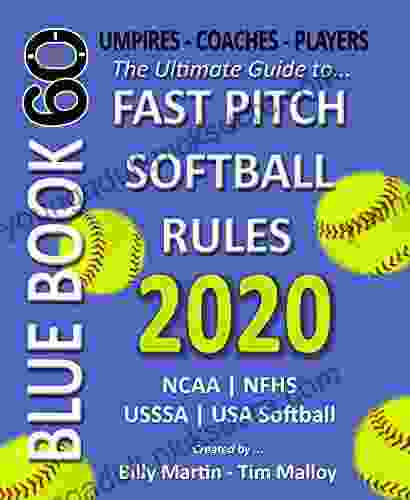
 Ronald SimmonsFeaturing NCAA, NFHS, USSSA, and USA Softball Rule Sets: A Comprehensive...
Ronald SimmonsFeaturing NCAA, NFHS, USSSA, and USA Softball Rule Sets: A Comprehensive... Everett BellFollow ·9.3k
Everett BellFollow ·9.3k Ryūnosuke AkutagawaFollow ·12.8k
Ryūnosuke AkutagawaFollow ·12.8k George R.R. MartinFollow ·3.2k
George R.R. MartinFollow ·3.2k H.G. WellsFollow ·19.3k
H.G. WellsFollow ·19.3k Kazuo IshiguroFollow ·19.8k
Kazuo IshiguroFollow ·19.8k Rubén DaríoFollow ·16.2k
Rubén DaríoFollow ·16.2k Simon MitchellFollow ·16.3k
Simon MitchellFollow ·16.3k Mark MitchellFollow ·6.3k
Mark MitchellFollow ·6.3k

 Devon Mitchell
Devon MitchellDelve into the Comprehensive World of Cartridges: A...
In the realm of firearms, cartridges stand...
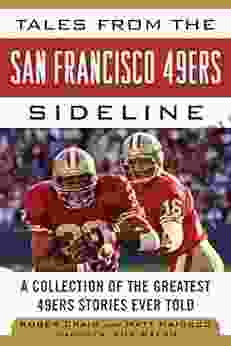
 Joseph Conrad
Joseph ConradTales From The San Francisco 49ers Sideline: A Look...
The San Francisco 49ers are one of the most...

 Ervin Bell
Ervin BellArcGIS Desktop 10: A Comprehensive GIS Tutorial for...
Geographic information...
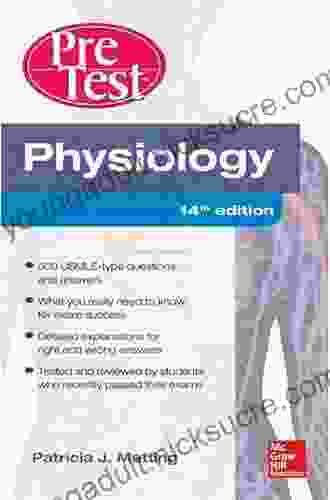
 Reed Mitchell
Reed MitchellPhysiology Pretest Self Assessment And Review 14th...
Accurately gauge your physiology knowledge and...

 Devin Ross
Devin RossLost At Sea: The Unbelievable True Story of the Jon...
In 2009, journalist Jon Ronson set out to...
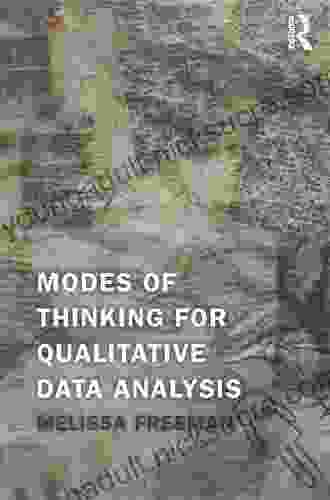
 Shane Blair
Shane BlairModes of Thinking for Qualitative Data Analysis
Qualitative data analysis is a complex...
4.6 out of 5
| Language | : | English |
| File size | : | 8499 KB |
| Text-to-Speech | : | Enabled |
| Enhanced typesetting | : | Enabled |
| Print length | : | 272 pages |



